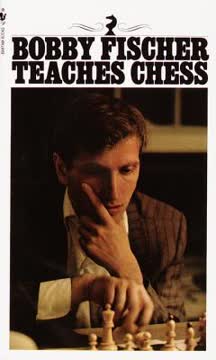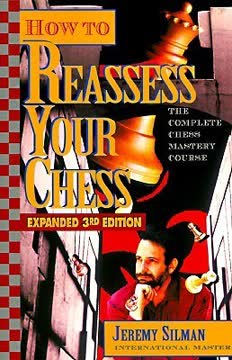Key Takeaways
1. Don't just 'think'; cultivate intuition and diverse perspectives.
Don't think. Feel.
Thinking is complex. Chess thinking involves evaluating, remembering, judging, analyzing, intuiting, and more, often intertwined with emotions like worrying or fearing. Limiting "thinking" to a cold, rational process taught by books or teachers is a mistake, as it overlooks the messy, intuitive aspects crucial for improvement. Effective chess thinking requires recognizing its multifaceted nature and choosing appropriate methods.
Patterns limit. The brain relies on pattern recognition from past experience, which can be rigid or inappropriate for new positions. Relying solely on conscious application of remembered patterns (analogy) can be misleading. Cultivating intuition, seen as the "chess unconscious" or a muscle to be exercised, allows access to a vast store of assimilated patterns and a "feel" for the position beyond conscious analysis.
Cultivate intuition. Techniques like "talking with your pieces" (imagining their desires and needs) or using "positional sketches" (analyzing positions in your own words) can help. Looking for "jokes" or unexpected asymmetries in positions can also jolt the mind out of rigid patterns. Ultimately, all chess thought is evaluative, seeking value, and intuition is key to this process, guiding where and how you look.
2. Be sensitive to the game's changing trends and critical moments.
Every time I see a kid making a mistake and ask him why he played that move his reply starts with the words 'Well, I thought...'. 'Don't think' I reply, 'look'.
Moments matter. Chess games aren't just a sequence of moves or positions; they are a series of changing trends and critical moments where the direction of the contest can shift dramatically. Unlike other sports with clear indicators (set point, penalty area), chess rules don't highlight these moments, requiring players to sense them themselves. Missing these "key moments" or "gateway positions" is a form of "blinking."
Trends vs. positions. We often assess chess by looking at single positions (static view), but the game is a constantly changing, dynamic process. Improving "trend sensitivity" means understanding how the assessment of the position is evolving over several moves. Key moments often occur when a prevailing trend stops, counterplay is pending, there's an abundance of choice, or the opponent makes an unusual move.
Transformations are key. Chess involves constant transformations (piece exchanges, pawn structure changes, phase shifts). Being sensitive to these transformations and understanding their impact on the game's direction is crucial. Failing to act decisively at a critical moment to make a necessary transformation, or making a big transformation when stability was needed, leads to missed opportunities and unfavorable shifts in momentum.
3. Manage your relationship with the result; cultivate gumption.
The best fighter is not ferocious.
Result fixation harms. Over-concern with the game's outcome ("Wanting") can blind players, leading to mistakes even in winning positions. Unlike sports where errors are often recoverable, a single mistake in chess can be fatal, making the result feel perpetually present and influencing decisions negatively. This is especially true when players are unaccustomed to favorable outcomes against strong opponents.
Gumption fuels play. To play effectively, cultivate "gumption" – a blend of energy, composure, and practicality. Gumption allows you to identify with the chess struggle itself, enjoying the process rather than being solely focused on the result. It's about feeling you're doing the right thing at the right time, regardless of the immediate outcome.
Avoid gumption traps. Be aware of situations that drain gumption:
- Drawish positions when wanting to win ("Plus Equals Mode" frustration).
- Lost positions (leading to defeatism).
- Winning positions (leading to complacency or nervousness).
Cultivate gumption through silence, breaks, or reminding yourself why the game matters beyond the score. In lost positions, apply "infinite resistance" by focusing on finding the best move, causing trouble, and retaining hope for a win.
4. See beyond material value; consider quality, time, and energy.
Too many people spend money they haven't earned, to buy things they don't want, to impress people they don't like.
Materialism blinds. Learning chess often starts with piece values (pawn=1, queen=9), creating a materialistic mindset where material count becomes the primary assessment tool. This is problematic because:
- Piece values are not constant; they depend entirely on the position.
- Other factors like piece activity, coordination, pawn structure, and king safety are equally, if not more, important.
- We struggle to compare tangible material with intangible positional factors ("incommensurability").
Pieces as energy. Instead of seeing pieces as static "blocks of wood" with fixed material value (mass), view them as "bundles of energy" – defined by their ability to do useful work in the position. This perspective aligns with E=mc², suggesting material value is equivalent to energy. A piece's value is its energy, its capacity for action, which fluctuates based on the position.
Four dimensions. Chess can be viewed as a game of four dimensions:
- Material (quantity of pieces)
- Time (initiative, tempo, clock time)
- Quality (positional factors like piece harmony, structure, king safety)
- Ticking (the constant pressure of the clock and opponent's turn)
Strong players consider all these dimensions, not just material. Overcoming Materialism means valuing quality and time as much as material, recognizing that a position can be "winning" not because of material count, but because of superior energy and control across all dimensions.
5. Understand your opponent's perspective; play inter-subjectively.
The desire to get rid of ego implies a contest: ego is charged with killing ego; ego battles with ego; ego wins!
Ego distorts. Egoism, the awareness of oneself as a subject ("I"), leads to errors like ignoring the opponent's ideas, feeling fear, or overestimating one's own position. While ego is inherent to competitive chess, excessive ego can prevent players from seeing the board clearly, as they focus too much on their own desires and plans. Striving for pure "objectivity" during play is difficult and may even be counterproductive.
Inter-subjectivity helps. Instead of aiming for impossible objectivity, adopt an "inter-subjective" perspective. This means being fully aware of yourself as a subject and equally aware of your opponent as a subject with their own fears, desires, plans, and limitations. This shared awareness allows you to anticipate their reactions and exploit their psychological state.
Prophylaxis in action. Prophylactic thinking, often seen as a hallmark of strong players, is a natural outcome of inter-subjectivity. It's not just defensive; it's actively planning your moves with constant reference to your opponent's potential responses and intentions. By understanding what your opponent wants to do, you can prevent their plans, seize responsibility for the game's direction, and keep them under pressure, even if your moves aren't immediately "attacking."
6. Overcome doubt and fear of mistakes; embrace pragmatism.
Perfection is spelt p-a-r-a-l-y-s-i-s.
Perfectionism paralyzes. The desire for perfection, striving to find the single best move every time, often leads to time-trouble and indecision. Perfectionists may "moralize" about opponent's moves, try to "copy" admired players, or suffer from "jam lust" (asking too much of a good position). This mindset stems from a fear of imperfection and a lack of confidence in one's own abilities.
Doubt fuels errors. Excessive doubt, often rooted in a fear of making mistakes, paralyzes decision-making. Spending too long on moves, constantly re-checking analysis, or getting bogged down in minor details are symptoms. This doubt isn't just cognitive; it's an emotional state that hinders clear thinking and prevents players from trusting their intuition.
Confidence is key. The antidote to Perfectionism is confidence – not the belief you won't make mistakes, but the knowledge that you will make them, and that's okay. Confidence allows you to be pragmatic: make educated guesses when necessary, accept that positions aren't always clear, and focus on making good, timely decisions rather than searching endlessly for the "perfect" move. Trusting your intuition and accepting responsibility for your choices, even imperfect ones, is crucial.
7. Maintain focus and control; manage emotional and cognitive distractions.
In walking, just walk. In sitting, just sit. Above all, don't wobble.
Looseness loses plot. "Looseness" is a state of lacking focus and control, making players susceptible to all other sins. It manifests as "losing the plot" (drifting without direction), being overwhelmed by nerves ("tension transference," "neural hijackings"), or being tricked by emotional memories ("echoes"). This state prevents players from maintaining a clear understanding of the game's unfolding story.
Emotional hijackings. Intense emotions (positive or negative) can trigger "neural hijackings," where the brain's emotional centers bypass rational thought, leading to impulsive or inexplicable decisions. Chess, with its inherent tension, can trigger these. Managing this requires acknowledging the role of emotions, expecting the unexpected, and maintaining perspective on the game's importance.
Stay present. Combat looseness by focusing on the task at hand ("just walk, just sit"). Avoid cognitive distractions like dwelling on past moves ("Nunn's hangover theory"), future outcomes, or irrelevant thoughts. Improve concentration by actively engaging with the position, managing your time effectively, and being aware of your emotional state without letting it dictate your moves. Taking responsibility for your focus helps maintain control.
Last updated:
Review Summary
The Seven Deadly Chess Sins is highly praised for its insightful analysis of common chess mistakes and their psychological roots. Readers appreciate Rowson's unique approach, blending chess strategy with philosophy and diverse references. The book is seen as valuable for serious players looking to improve, offering practical tips and thought-provoking discussions. Some find parts of the book challenging, but most consider it a fascinating resource for long-term study. Reviewers commend its depth, humor, and ability to provoke self-reflection, making it more than just a standard chess book.
Similar Books
Download PDF
Download EPUB
.epub digital book format is ideal for reading ebooks on phones, tablets, and e-readers.













